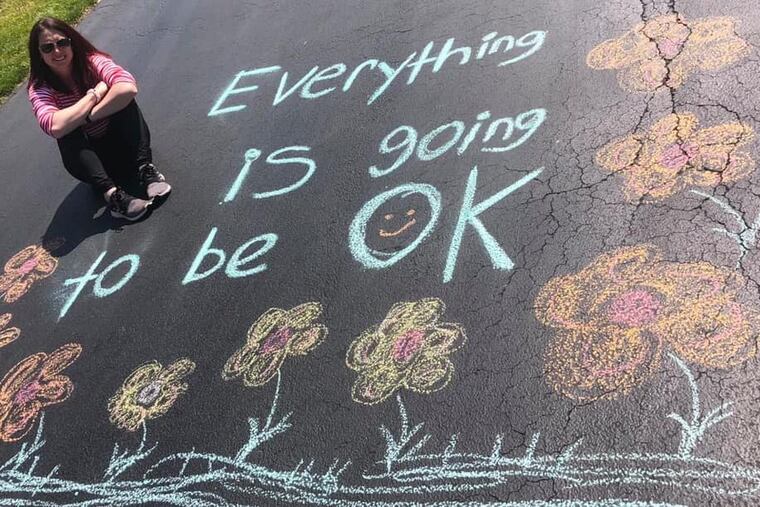Hey, volunteers — Pennsylvania needs you
It's National Volunteer Month, and with a decrease in revenue during the pandemic, Pennsylvania’s nonprofits need help from their volunteers more than ever.

Volunteers are the lifeblood of nonprofits across the country. They are also the lifeblood of my organization, Special Olympics Pennsylvania.
When COVID-19 first hit and everything shut down, our volunteers found creative ways to keep serving our athletes with intellectual disabilities. To stay in touch and boost the spirits of one of the most marginalized and isolated groups in our society during one of the most isolating periods of our time, our volunteers set up virtual meetings, organized car parades past athletes’ houses, and decorated their driveways with sidewalk chalk. To keep our athletes active when in-person activities weren’t permitted, they launched virtual fitness activities such as a walking, running, wheelchair rolling distance challenge, in which participants selected a goal distance in advance and had a set number of weeks to achieve it.
Our Pennsylvania volunteers are truly some of the most amazing people I’ve ever met.
Special Olympics isn’t the only organization blessed with such dedicated volunteers. Across the state, a reported 3.5 million volunteers contributed more than 340 million hours of service in 2019, worth an estimated $8.2 billion. In fact, Pennsylvania has upward of 60,000 nonprofit organizations buzzing with goodwill efforts and initiatives to drive impactful, powerful change across the state.
» READ MORE: Special Olympics is embraced by Philly Public League athletes
Today, Pennsylvania’s nonprofits need help from their volunteers more than ever.
As a result of the pandemic, more than 80% of the state’s nonprofits have lost revenue, with many simultaneously experiencing an increase in operating costs. Many also dealt with increased demand for services and shortages in staff. All of these pressures make the contributions of volunteers even more valuable and essential.
April is National Volunteer Month, and I want to make this call to all Pennsylvanians: volunteer. Give back. Help out with the causes that mean the most to you. I promise you won’t regret it.
“Help out with the causes that mean the most to you. I promise you won’t regret it.”
While organizations benefit from volunteers, volunteers reap benefits in return. So many people still feel isolated and shaken from the effects of COVID-19, and becoming part of a volunteer community is a way to forge new connections and make a difference. We all need community and purpose. What’s more, volunteering can expand our perspectives and open doors to new opportunities.
Volunteering is also part of the American identity, often more so than in other countries. Research has shown that people living in the U.S. are more likely to volunteer their time and efforts than people living in Germany and Switzerland, for instance. But this all-American pastime is showing signs of dying out. Since the rate of volunteerism peaked in the early 2000s, it’s been slowly declining. Today, only around one-quarter of Americans volunteer for a cause each year. My organization benefits from the support of nearly 40,000 amazing volunteers, but we, too, have seen a drop in interest during the pandemic.
Of course I want people to volunteer at Special Olympics Pennsylvania, but there are plenty of other local organizations that need help. Any nonprofit that provides services related to housing and food are particularly in need right now, such as Martha’s Choice Marketplace, a food pantry in Montgomery County.
We need to reverse the trend of declining volunteerism and build new momentum to drive positive change in our communities, helping us not only rebuild but also thrive as we emerge from the pandemic. The worst of times inspires the best in people. May this pandemic spark a movement of compassion and volunteerism that transforms the very fabric of our communities.
Matt Aaron is president and CEO of Special Olympics Pennsylvania, which provides year-round training and competition in 21 Olympic-type sports for 13,000 children and adults with intellectual disabilities.